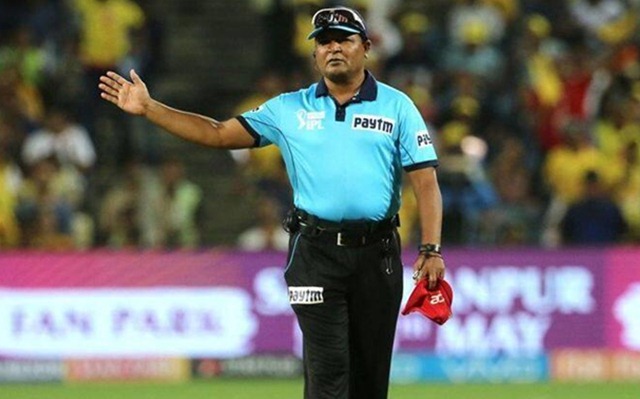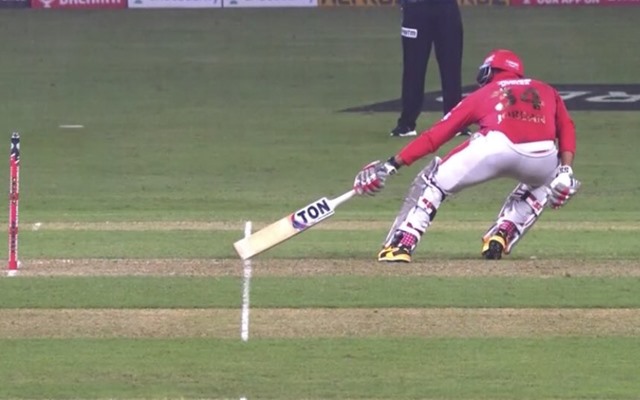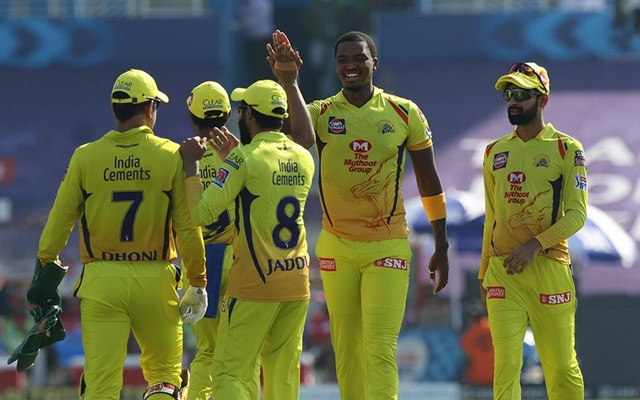IPL 2021: Few tweaked rules for the upcoming season
Rules that will be little changed in IPL 2021.
6 Min Read


IPL Umpire. (Photo Source: Twitter)

The IPL has been making summers awesome since 2008. In the very first match, the KKR demolished the RCB bowling attack. This match set up the tone of the tournament, And as a result, cricketers from all over the world participated in the auction. With so much on the line, the competition was heating up.
As BCCI managed to conduct more seasons of the IPL, the technological changes helped the fans and the umpired to witness fair games of cricket. The DRS was one of the innovative changes which revolutionized the IPL. Adding on, this technology helped the teams to challenge the decision of the umpire. Unfortunately, umpiring has been poor since the last two seasons of the IPL.
But it is not only about poor umpiring decisions. There are multiple rules like soft signal and no ball that have affected the outcome of matches. It was high time to make some changes and the BCCI has managed to implement some. Let’s take a look at-
Few tweaked rules for IPL 2021
1. No soft signal

The soft signal has been the talk of the town since its introduction in the world of cricket. Although in some instances, it leads to vague decisions like in the case of Suryakumar Yadav but speaking generally, it gives a lead to the third umpire. Since its introduction, the third umpire has been dependent on the on-field umpire to make his decision.
Recently, Indian skipper Virat Kohli had expressed his views about the soft signal rule. He stated that there is no need for the signal when referring to a decision to the third umpire. Well, this issue has been discussed by the BCCI as they have removed the soft signal rule for the upcoming season of the lucrative IPL. This decision might be implemented on the international stage too.
This decision might open up the window of flawless decisions. As the on-field umpires are usually wrong in the case of the soft signal rule, the main issue with this rule is they do not get a clear picture of the field. This change has been made in the Appendix D-Clause 2.2.2 of the playing conditions of IPL.
2. Short-run rule

Another rule that has been causing issues is the short-run rule. This occurs when the batsman fails to take a complete run while running between the wickets. As a result of which, the team gets one less run. But, last year, it was one of the major reasons why KXIP (now PBKS) failed to reach the playoffs.
As per the new rule, in case of a short run appeal, the third umpire checks the short run. Adding on, he can change/ overturn the decision that has been made by the on-field umpire. This new rule will surely be welcomed by the franchises because the on-field umpires usually fail to recognize instances of a short run. This rule has been reflected in the new rules in the rulebook for the 2021 season of the IPL.
This rule had become a hot topic for all the fans last year. KXIP was at the receiving end when the on-field umpire failed to clear the issue in the short run. Unluckily for Punjab, the game went on to the super over and they lost. This issue was reported by the management of KXIP in the form of an official complaint.
3. New match durations

The match timing is one of the portions of the game which leads to confusion amongst the captains and the fans. Usually, the 20th over of each inning has to be started on or before the 90th minute. But this rule created a lot of confusion as the skippers took a lot of time to adjust the fields. As a result of which they were fined.
To avoid this issue, the new rule that has been implemented might be beneficial for both the players and the fans. To control the match timings, the 20th overs in each innings is now included in 90 minutes. This means that the captains will stay alert of the match timings. Apart from that, the fans will not have an issue with the timing of the game.
IPL has been a lucrative tournament. But in multiple instances, the fans had to wait because of repeated delays in bowling changes. Well, it is not only about the bowling changes, batsmen also take up a lot of time. As the 20th overs in each innings has to be bowled within 90 minutes, both sides will look forward to not wasting any time.
4. No-ball and super over rules

The no-ball rule is implemented when the bowler has overstepped while bowling. And this gives a batsman to gain an opportunity to score freely via a free hit. However, in this batsman-friendly game, the umpires are harsh on the bowlers. Even if the heel is just behind the line, sometimes the umpire declares it as a no-ball.
This has created a lot of fuss in the game. To avoid this, the IPL managing committee has decided that the third umpire can overrule the no-ball decision made by the on-field umpire. Hence, the bowler can not get even away with the waist-high full toss which was neglected by the umpire. Well, it looks like both sides will get a fair chance by this change.
Apart from the no-ball rule, there is another updated clause which states that in an uninterrupted game, subsequent super over can be played for an hour. This rule has cleared the air related to how many multiple super overs could be conducted. Last year, the fans witnessed a double super over for the first time. And to avoid confusion, the managing committee has decided to implement this decision.
Download Our App